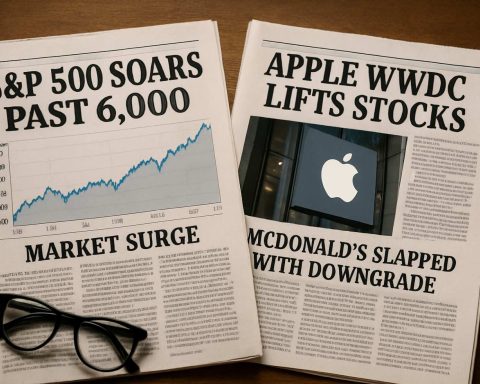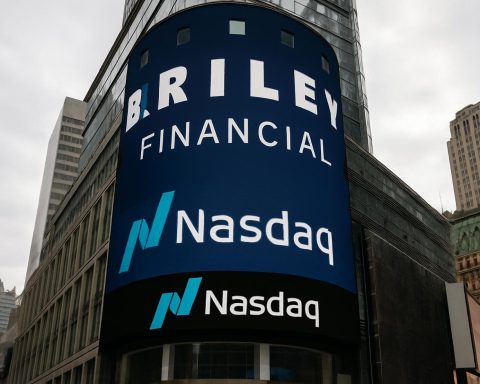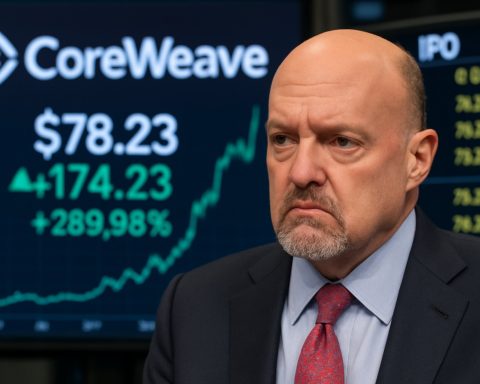- A notable wave of insider selling at Kinder Morgan has garnered investor and analyst attention, raising questions about their motives and insights.
- Significant sales by key insiders, including C. Shaper’s US$22 million divestment, suggest possible insider reservations about the company’s future stock value.
- No corresponding insider purchases contrast with these sales, hinting at potential skepticism about current valuations.
- Insiders own approximately 13% of Kinder Morgan, aligning their interests with shareholders, despite recent selling trends.
- Kinder Morgan continues to report strong earnings, posing a paradox between operational success and insider caution.
- Investors are reminded to adopt a comprehensive approach, balancing insider activities with core business strengths and market conditions.
A wave of insider activity at Kinder Morgan has captured the attention of investors and analysts alike, prompting a closer examination of the motives that drive such moves within corporate walls. A notable shift occurred when insiders, including key figures like independent director C. Shaper, began reducing their stakes, with a collective sell-off amounting to millions within the last year. This raises the question: What do these actions imply for everyday shareholders?
In a transaction echoing through financial circles, C. Shaper divested US$22 million worth of Kinder Morgan shares at a price comfortably below the current market value. This calculated decision nudges us to ponder the insight insiders may hold about the company’s actual worth and future trajectory. While it’s prudent to recognize that insiders may sell for a myriad of personal reasons—ranging from portfolio diversification to personal financing needs—this consistent pattern of selling cannot be ignored.
The significant insider offload within the recent months, amounting to US$3.6 million in shares, was met with a conspicuous absence of insider purchases. This whisper of skepticism among those closest to the company’s operations could hint at reservations about current stock valuations. Insiders, who collectively own about 13% of Kinder Morgan, have vested interests tightly interwoven with the company’s success, offering a rare lens into the corporate outlook.
Yet, it’s not all shadows and doubts at Kinder Morgan. Despite these sales, the energy infrastructure giant continues to report robust earnings, signaling operational strength and financial health. This juxtaposition—a thriving company versus its insiders’ cautious sales—challenges investors to consider the multi-faceted nature of investment decisions.
The recent insider sell-off serves as a vital reminder: Investing requires a holistic approach. Stakeholders should weigh insider activities against broader business fundamentals and market conditions. Kinder Morgan’s high level of insider ownership generally indicates alignment with shareholder interests, yet recent trends urge caution. It’s a sophisticated dance between visible insider actions and the underlying fundamentals driving them.
As financial tales unfold, let this guide your exploration into the deeper dynamics at play within your investment portfolio—because each trade carries a story, and sometimes, it’s what isn’t said that speaks the loudest.
What’s Behind the Insider Move at Kinder Morgan? A Deep Dive into Market Signals
In the world of investment, insider trading often signals significant shifts within a company. The recent wave of insider activity at Kinder Morgan has prompted a reevaluation of classic investment strategies and raised questions about the company’s true market position.
Understanding Insider Behavior
When insiders like C. Shaper, an independent director at Kinder Morgan, sell shares worth millions, it’s crucial to dissect the potential motives behind such transactions. While insiders sometimes divest shares for personal reasons, such as diversification or liquidity needs, the scale and pattern of these sales can often hint at deeper perceptions about the company’s future.
Key Insights into Insider Selling:
1. Market Value Implications:
– The sale of US$22 million worth of shares by C. Shaper below current market values may suggest insider sentiments about possible overvaluation or risk factors. Yet, it’s important to consider this alongside other data.
2. Absence of Insider Buying:
– The lack of purchases amid significant sales can reflect a cautious stance by those with privileged insights into the company’s trajectory.
3. Ownership and Alignment:
– With insiders holding around 13% of the company, their interests are aligned with shareholders. Such stakes usually imply a belief in the company’s potential unless extenuating economic factors influence sell-offs.
Corporate Health vs. Insider Actions
Despite the insider activity, Kinder Morgan’s earnings reports project a robust financial outlook, with strong revenue flows and sustained operations in energy infrastructure. This creates a complex narrative for investors who must weigh insider skepticism against continued corporate success.
Pressing Questions Investors Are Likely to Have:
– Why are insiders selling now?
Insiders might anticipate future market corrections or possess private insights about upcoming challenges. External economic conditions or strategic shifts may also play roles.
– Is the stock overvalued?
Comparing sell-off trends with independent market analyses can help determine whether current prices are inflated beyond intrinsic value.
Real-World Implications and Strategic Approach
To address these questions effectively:
– Diversify Your Portfolio: Balance potential risks at Kinder Morgan with investments in diverse sectors to mitigate market volatility impacts.
– Monitor Market Signals: Keep abreast of industry trends and macroeconomic indicators that could influence Kinder Morgan’s future performance.
– Utilize Financial Tools: Leverage analytical tools and resources, such as Investopedia, to assess market trends and make informed decisions.
Industry Trends and Predictions
– Energy Market Forecast:
As the global transition to sustainable energy progresses, companies like Kinder Morgan must adapt. Watch for developments in green technology investments and regulatory changes, as these will heavily impact infrastructure companies in the long run.
– Market Dynamics:
With fluctuating oil and gas prices, positioning within the sector may shift quickly. Investor focus on ESG (Environmental, Social, and Governance) factors is expected to increase, prompting companies to prioritize sustainable practices.
Conclusion and Recommendations
Given the current insider activities at Kinder Morgan, investors should adopt a prudent approach, integrating insider actions with broader industry analyses. Here are some quick tips:
– Review and Adjust: Stay proactive by regularly evaluating your portfolio.
– Seek Expert Opinions: Consult with financial advisors to interpret insider trading signals within the framework of market conditions.
– Stay Informed: Utilize dependable resources like CNBC to access real-time news and updates.
This nuanced understanding and strategic insight will equip stakeholders to navigate the complex terrains of investment with greater confidence and adaptability.










